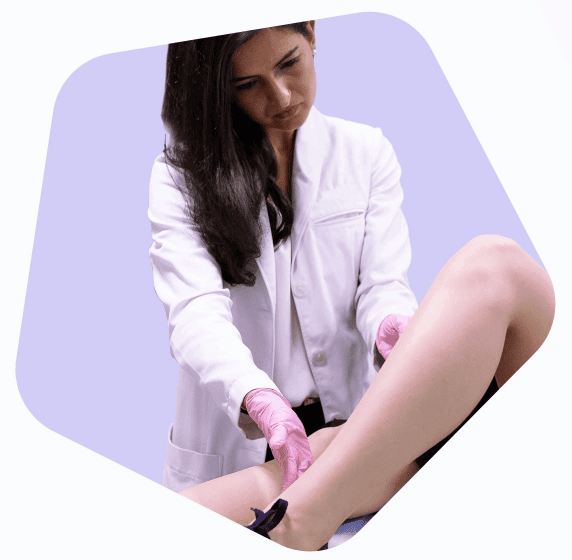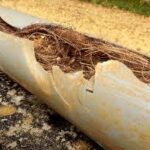Varicose veins are a common medical condition that affects millions of people around the world. These swollen, twisted veins often appear on the legs and can cause discomfort, pain, and even more severe health complications. If you are experiencing varicose veins, it is important to seek the right treatment from a qualified professional. But what doctor treats varicose veins, and how do you find the best vein treatment specialist? This guide will answer all your questions and help you understand the role of specialists in treating varicose veins.
What Are Varicose Veins?
Before diving into the details of treatment, it’s essential to understand what varicose veins are. Varicose veins occur when the veins in your legs become enlarged and twisted. This happens due to weakened vein walls and faulty valves that prevent blood from flowing properly. When blood starts to pool in the veins, they become visible under the skin and may cause symptoms such as pain, swelling, heaviness, and fatigue in the affected areas.
While varicose veins are often harmless, they can lead to more serious conditions if left untreated. These include chronic venous insufficiency, ulcers, or blood clots. Therefore, it is crucial to seek professional treatment as soon as you notice symptoms.
Who Can Diagnose Varicose Veins?
Several healthcare professionals can diagnose varicose veins. However, the most qualified specialists for diagnosing and treating varicose veins are vein treatment specialists, vascular surgeons, and phlebologists. These doctors have the expertise to assess the condition of your veins and recommend the most appropriate course of action for your treatment.
What Doctor Treats Varicose Veins?
Vascular surgeons and phlebologists are the main doctors who treat varicose veins. Both specialists are well-versed in diagnosing and treating vein-related issues, but their roles may differ slightly.
1. Vascular Surgeons
A vascular surgeon is a medical doctor who specializes in the diagnosis and treatment of conditions affecting the blood vessels, including veins and arteries. Vascular surgeons are trained to perform both surgical and non-surgical treatments for a variety of vein conditions, including varicose veins.
If your varicose veins are severe or complicated, a vascular surgeon might recommend surgery, such as vein stripping, endovenous laser therapy (EVLT), or sclerotherapy. These treatments aim to remove or close off damaged veins and restore normal blood flow.
Vascular surgeons have extensive training in the anatomy of veins and arteries, making them well-equipped to address complex venous problems. If you’re dealing with large or painful varicose veins, a vascular surgeon is often your best option.
2. Phlebologists
A phlebologist is a medical doctor who specializes in the diagnosis and treatment of vein diseases, including varicose veins, spider veins, and other venous disorders. Phlebologists typically focus on non-surgical treatments, such as sclerotherapy, laser therapy, and compression therapy.
Phlebologists often work in outpatient clinics and specialize in the conservative management of vein problems. They may use minimally invasive techniques to treat varicose veins, which can offer patients faster recovery times and fewer risks compared to traditional surgery.
If your varicose veins are not causing severe symptoms or complications, a phlebologist may be a suitable choice. They will assess your condition and recommend a treatment plan that suits your specific needs.
3. Interventional Radiologists
In some cases, interventional radiologists can treat varicose veins through minimally invasive procedures. These specialists use advanced imaging techniques to guide them during treatments like endovenous laser ablation (EVLA) or radiofrequency ablation (RFA). These procedures involve using heat to close off damaged veins and redirect blood flow to healthier veins.
While interventional radiologists are not typically the first line of defense for varicose veins, they can be a good option for patients who require non-invasive treatments. Your doctor may refer you to an interventional radiologist if they believe that a non-surgical approach is the best course of action.
What to Expect from a Vein Treatment Specialist
When you visit a vein treatment specialist, the doctor will start by performing a thorough evaluation. They will ask about your symptoms, medical history, and lifestyle factors that could contribute to the development of varicose veins. A physical examination will be conducted, during which the doctor will inspect your veins and assess their condition.
In many cases, the doctor may use ultrasound imaging to visualize the veins and assess the blood flow. This helps in identifying the exact location of the varicose veins and determining the severity of the condition.
Once the diagnosis is complete, the vein treatment specialist will discuss your treatment options with you. Depending on your specific case, the doctor may recommend one or more of the following treatments:
- Sclerotherapy: A minimally invasive procedure in which a solution is injected into the affected veins to close them off. This causes the veins to collapse and eventually be absorbed by the body.
- Endovenous Laser Therapy (EVLT): A non-surgical procedure that uses laser energy to seal off damaged veins. This method is commonly used for larger varicose veins.
- Radiofrequency Ablation (RFA): Similar to EVLT, this procedure uses radiofrequency energy to close off varicose veins. It is also minimally invasive and has a shorter recovery time than traditional surgery.
- Vein Stripping: In cases of severe varicose veins, the doctor may recommend vein stripping, which involves surgically removing the damaged veins.
- Compression Stockings: In some cases, your doctor may recommend wearing compression stockings to help improve circulation and relieve symptoms of varicose veins.
How to Choose the Right Vein Treatment Specialist
Choosing the right vein treatment specialist is an important step in getting effective treatment for varicose veins. Here are some factors to consider when selecting a doctor:
- Experience and Qualifications: Look for a doctor who is board-certified and has experience specifically treating varicose veins. Ask about their training and the types of treatments they offer.
- Treatment Options: Consider a doctor who offers a variety of treatment options, from conservative methods like sclerotherapy to more advanced procedures like laser therapy or surgery.
- Patient Reviews and Testimonials: Read reviews from other patients to get a sense of the doctor’s reputation and level of care. Positive feedback from previous patients can help you feel more confident in your choice.
- Consultation: Schedule a consultation with the doctor to discuss your symptoms and treatment options. This will give you the opportunity to ask questions and get a better understanding of their approach.
- Insurance and Costs: Ensure that the doctor accepts your insurance plan, or inquire about the cost of treatment if you are paying out of pocket.
Conclusion
If you’re wondering what doctor treats varicose veins, the answer is typically a vascular surgeon, phlebologist, or sometimes an interventional radiologist. These specialists are trained to diagnose and treat varicose veins, using a range of non-invasive and surgical treatments tailored to your needs. When seeking treatment, be sure to choose a vein treatment specialist who has experience and offers a range of treatment options. With the right care, you can alleviate symptoms and improve your quality of life.



